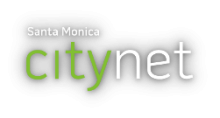Santa Monica's Muni To Help Bridge The Digital Divide
Earlier this month, the Santa Monica City Council met to approve rates for the city's Digital Inclusion Pilot Program. The program is already in place, bringing free Gigabit per second (Gbps) Internet access to computers in community rooms in ten affordable housing complexes. The March 1st vote expands the program to offer residents the opportunity to sign up for services in their homes.
According to the Santa Monica Mirror, official monthly rates are set at $69 for 1 Gbps and $360 for 10 Gbps. People receiving Public Assistance will be able to obtain a discount to lower the rates to $48 and $252 per month respectively. An additional FCC Lifeline subsidy for those who qualify will lower the cost further to $38.25 per month for 1 Gbps Internet access. Download and upload speeds are the same.
Staff at the city established the rates for the pilot after studying rates in other markets where Gigabit access is available including Chattanooga, Lafayette, and Google Fiber. In order to support adoption in lower income households, city staff analyzed discounts that typically apply for other utilities and suggested a 30 percent discount for those actively participating in those programs. This approach does not exclude the elderly or households without school age children, one of the criticisms of Comcast's Internet Essentials. The staff report is available at the city website.
The Council approved a resolution, which also included construction funding of $175,000 for the project.
“In a global economy, any competitive edge we can offer our community is a worthy venture,” Gary Carter, Santa Monica City’s Community Broadband Manager told The Mirror.
“Santa Monica is uniquely positioned to collaboratively innovate as a community to fully leverage the technology of a cutting edge fiber optic network.”
Long Time Coming



